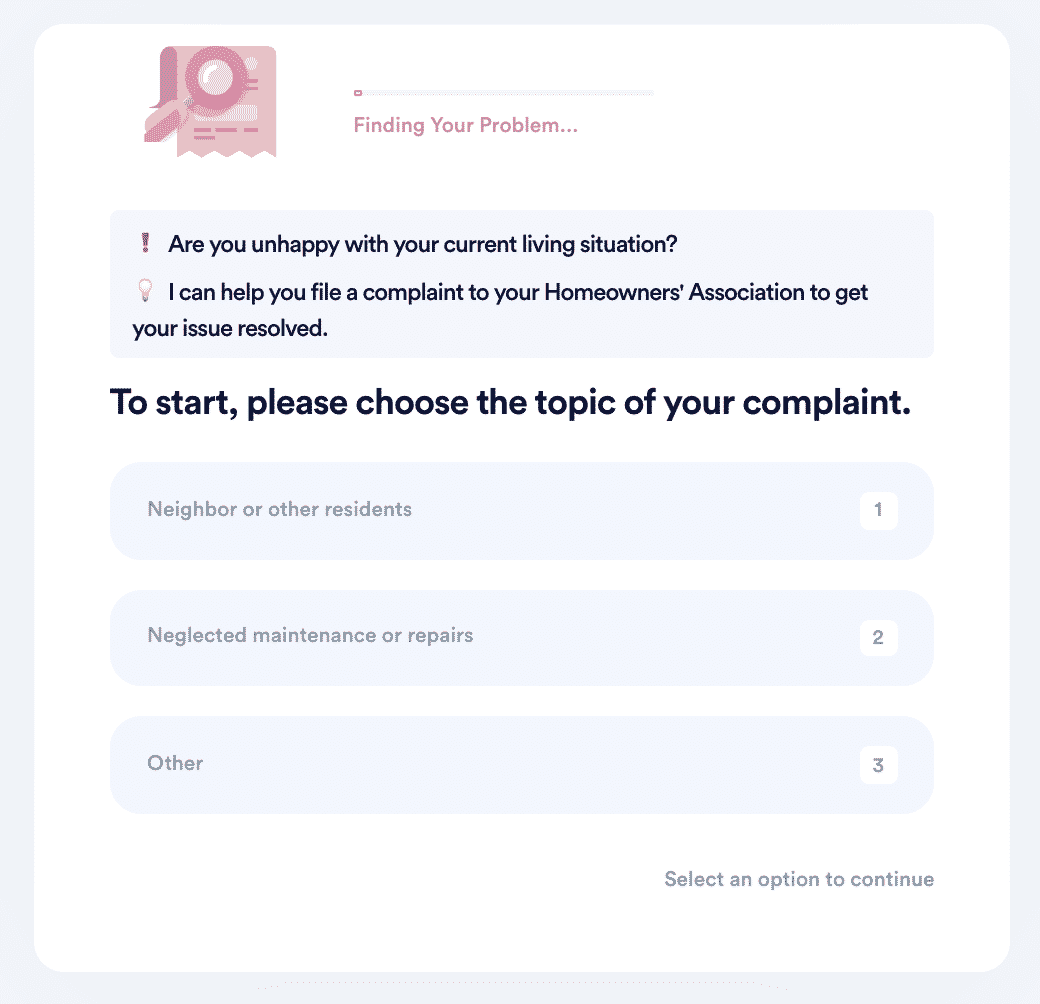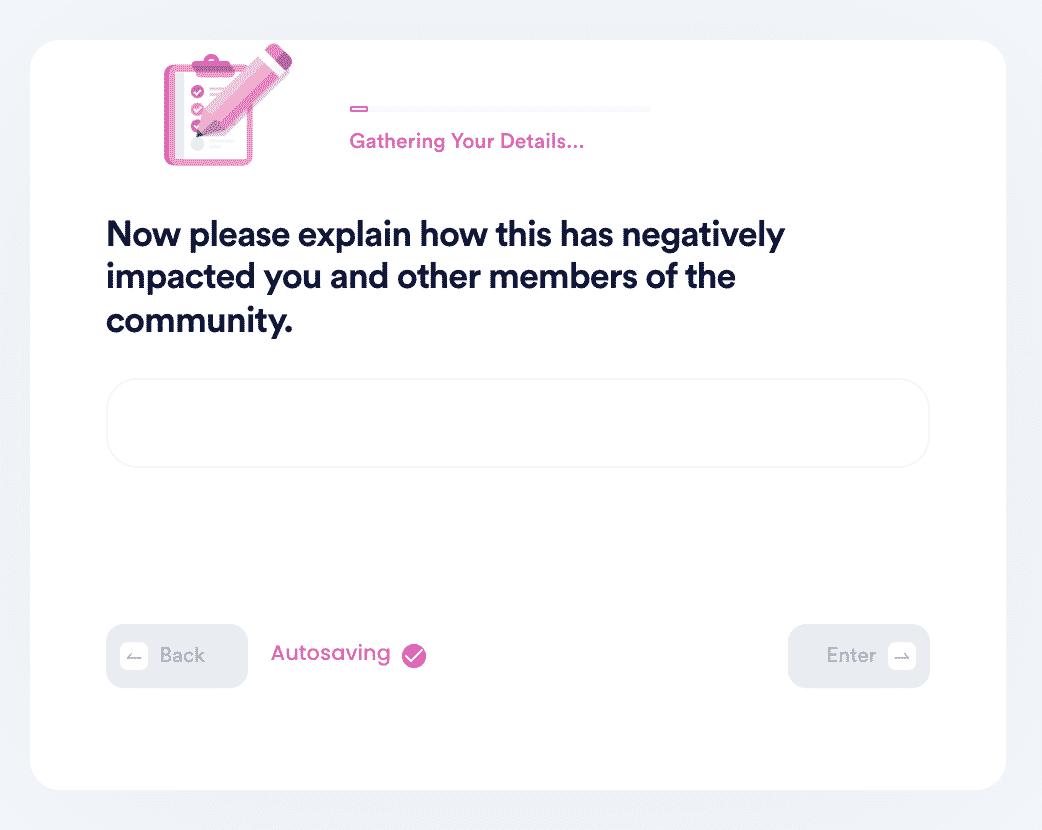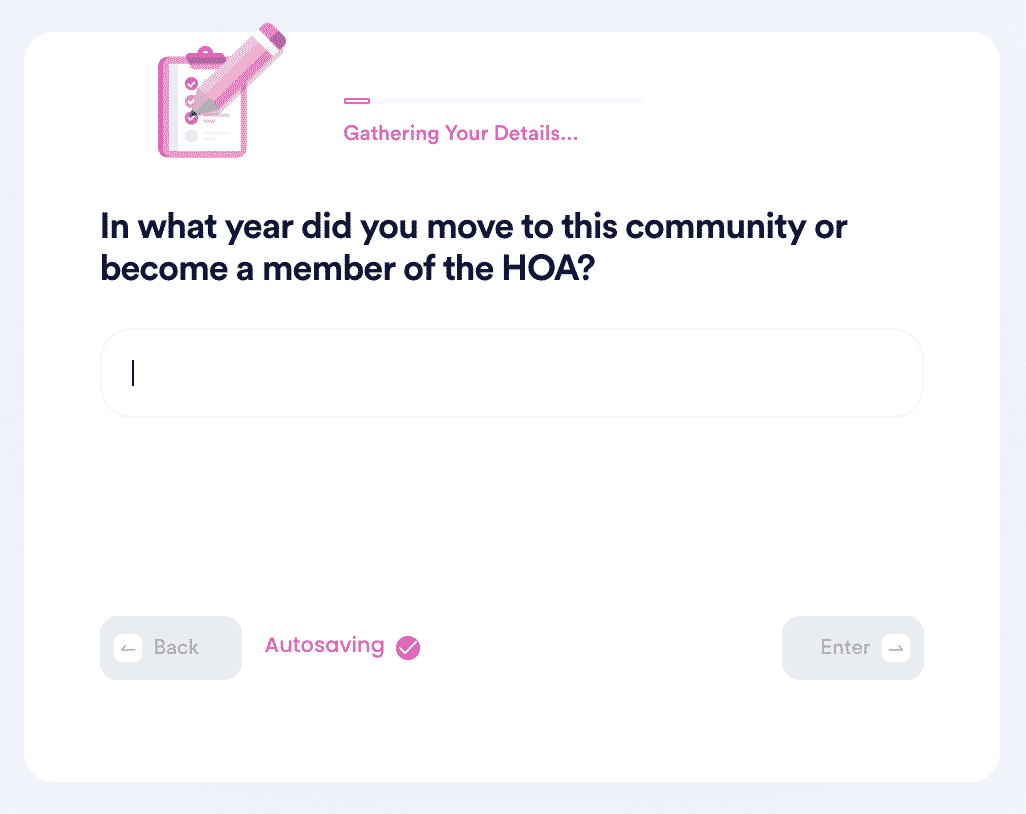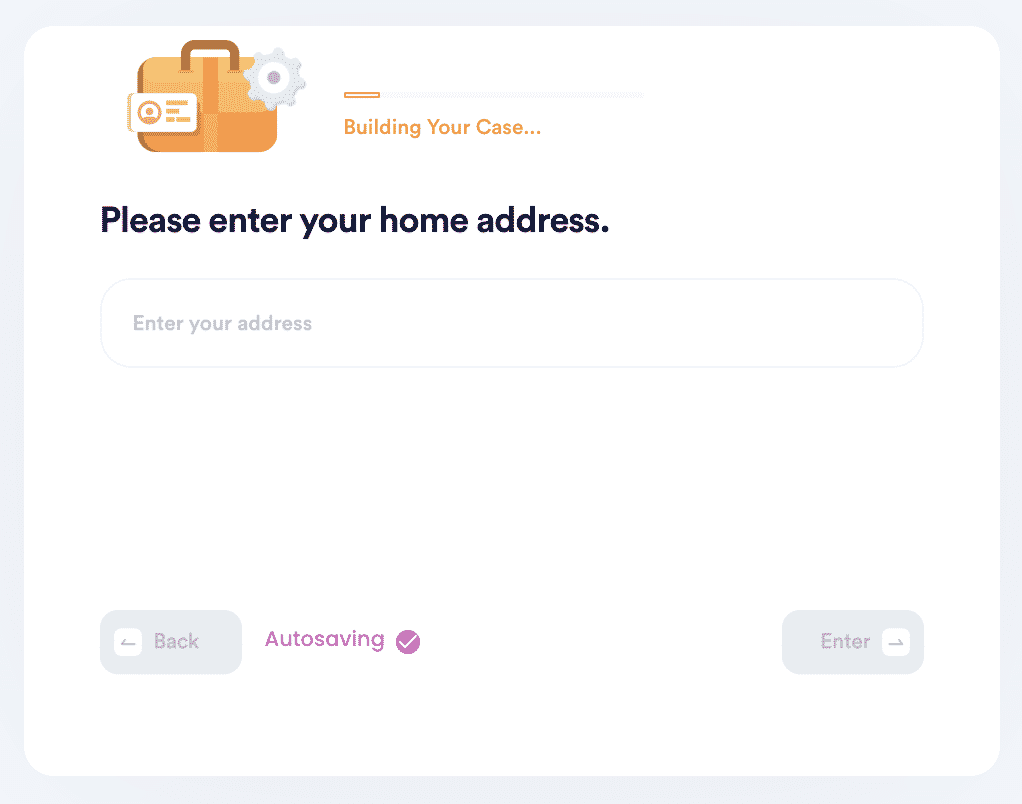How to Identify and Report HOA Proxy Abuse?
Despite their effectiveness, HOA proxies have been widely criticized by association members for how it’s being used in attendance and voting in Association General Meetings. There are instances where .
For instance, in meetings, one or two people have taken advantage of the fact that there is no limit on the number of proxy votes a person may have. Another issue is when the board holds proxy documents in private.
If you are wary of HOA proxies and think it is being abused, you may want to file a complaint. Fortunately, DoNotPay is here to assist.
What Is an HOA Proxy?
An HOA proxy is a document that gives representation and authorizes a person to act on behalf of a homeowner. Homeowners issue proxies when they are unable to attend meetings or HOA voting. This way, even if the homeowner is not present, they are represented regarding specific issues, a quorum is met, or their vote can be counted.
The rules for choosing a proxy vary depending on the HOA bylaws or state law. Some regulations specify that a tenant can vote on association matters; others don’t. As a homeowner, you should understand the guidelines so you can choose the best fit for a proxy representative.
Assigning an HOA proxy will help the homeowner maintain their interests and have their voice heard. Similarly, it allows the HOA meeting to move forward and not worry about absent members.
However, there are cases when the use of .
How HOA Proxy Fraud Can Happen
A good example of a situation where an HOA proxy can be abused is during the election of board members. Since homeowners can vote via HOA proxies, candidates solicit them to vote on behalf of the absentee homeowners. While nothing prevents them from soliciting proxies, an HOA rife with fraud can use these to stay in position.
Deceit and forgery are possible with HOA proxies. It’s an easy way to cheat–if they know that some homeowners won’t attend the meeting, they will just create copies of proxies and sign the names of the absent owners. There have been cases where the board members don’t disclose the proxy records, making homeowners suspect there is HOA election fraud.
Another instance is when there are no clear rules on the limit on the number of proxies a homeowner can have. An issue also arises if the vote of the proxy holder is being questioned: did he vote as the grantor wanted, or was he influenced by someone else?
Steps to Avoid HOA Proxy Abuse as a Homeowner
While fraud can happen anywhere, you can do your part to prevent it. Here are some steps you can do as a homeowner/member:
- Avoid using proxies if you can. If there is a way to vote by mail or email, then do so.
- If you can’t go to vote, make sure you assign a representative that will truly vote as you would, especially if it’s an issue you care about.
- Be wary if your board is being secretive about voting results. That is a red flag when they don’t want to show you what is happening.
Don’t hesitate to point it out if you suspect HOA proxy abuse. However, take note that you must check governing documents before you act.
How to Make a Complaint With Your HOA on Your Own
When battling your HOA, you must know how to take on the board of directors.
- Investigate the rules and regulations of your HOA.
- Review state laws concerning voting by proxy in an HOA.
- Contact your HOA to learn more about your rights as a homeowner and understand the rules on HOA proxies.
- If you feel there is fraud or abuse, draft a letter of complaint and submit it to the HOA.
- You may request to call a special meeting to address suspicious activity.
- Attend the hearings when scheduled.
However, if your HOA does not do anything about your complaint, you can raise the issue to a higher authority or involve law enforcement. State laws govern how HOAs operate, but there are federal agencies also that have oversight authority:
| Consumer Financial Protection Bureau | This bureau implements federal consumer financial laws, which include the Servicemembers Civil Relief Act and the Fair Debt Collection Practices Act. |
| U.S. Department of Housing and Urban Development | This federal department imposes the Fair Housing Act, which forbids discrimination in the financing, sale, or rental of places of residence because of disabilities, race, national origin, color, familial status, religion, and sex. |
| Federal Trade Commission | This commission carries out the Federal Fair Debt Collection Practice Act. This law bans debt collectors from deceptive, abusive, and unfair practices regarding debt collection. |
| United States Department of Justice Civil Rights Division | This division enforces laws relating to civil rights, including the Americans with Disabilities Act, which prohibits discrimination against persons with disabilities regarding access to government services and programs, employment, communications, transportation, and public accommodations. |
How DoNotPay Can Help Deal With HOA Proxy Abuse
It is tedious and time-consuming to deal with HOA proxy abuse alone. DoNotPay can help simplify the issue and assist you in dealing with any misuse of proxies by your HOA.
If you need to file an urgent HOA dispute, DoNotPay is here to assist! DoNotPay's "File an HOA Complaint" offering is everything you need to get a professionally-written complaint letter.
Here’s how to file a complaint with your HOA using DoNotPay:
- Choose and describe the nature of your complaint (neighbors, maintenance, etc.).

- Explain how this problem has negatively affected you and how you want the HOA to address the problem.

- Tell us how long you've been a member of this HOA.

- Confirm your home address so we can generate state-specific arguments on your behalf!

And that's it! DoNotPay will generate your complaint letter on your behalf with a two-week deadline for their representatives to resolve the issue or contact you with more information. All you have to do is drop the letter off to your HOA manager!
DoNotPay Operates Across Many Companies, Entities, and Groups With the Click of a Button
DoNotPay may help more than one business or individual; you can connect with various individuals and organizations. With DoNotPay, you may be able to appeal a proxy misuse in Kentucky, just as you might in California.
Here are other HOA concerns DoNotPay can help you with:
- Get help with HOA Complaint forms
- Easily file HOA noise complaints
- Dispute HOA Late Fees
- Fight HOA discrimination against renters
What Else Can DoNotPay Do?
Visit DoNotPay to deal with and other HOA issues, and have your questions answered. DoNotPay can also help you:
- Conduct a sex offender search in your area
- File complaints against neighbors
- File complaints against any company
- Get an insurance claim easily
- Get assistance with bills
 By
By